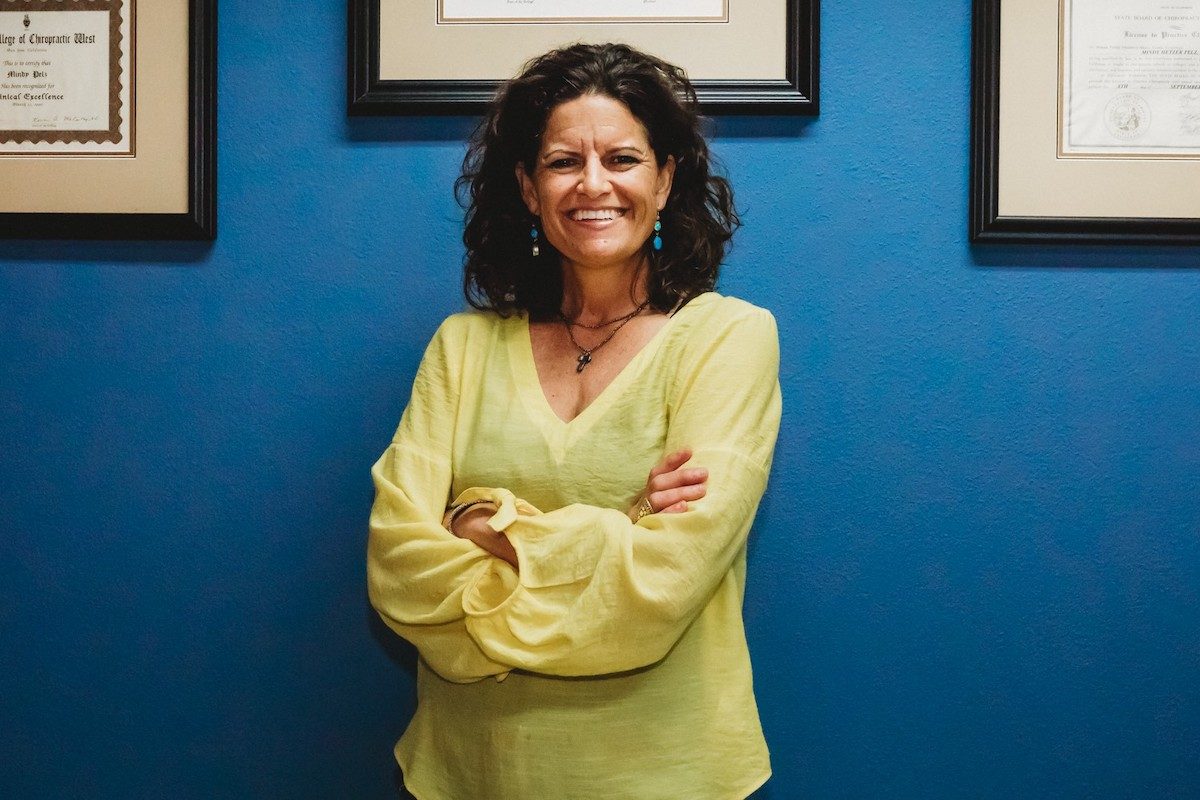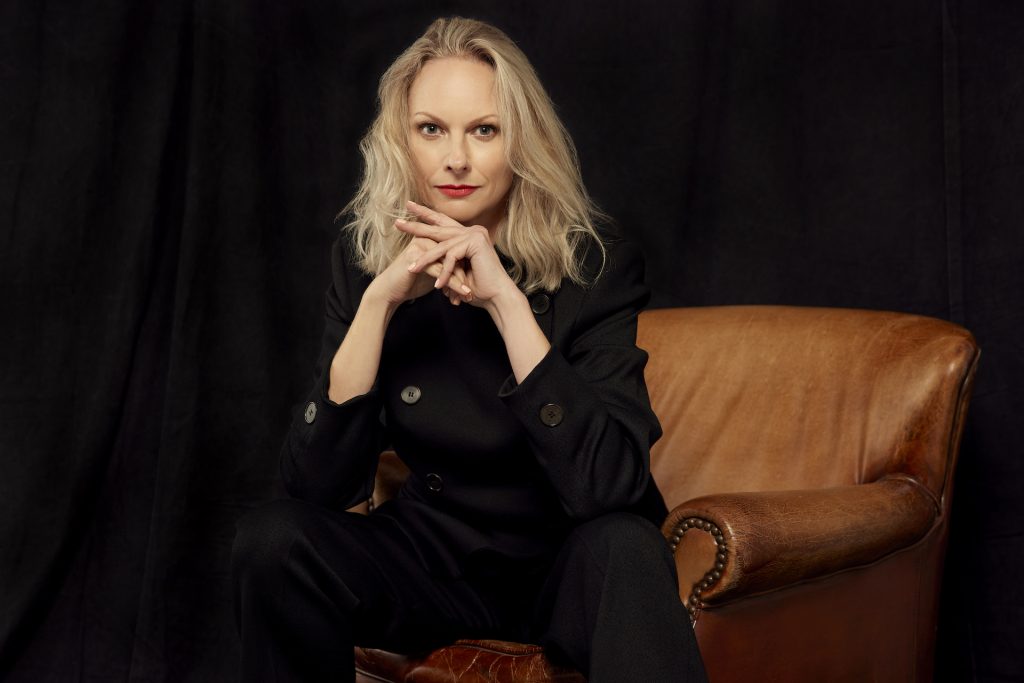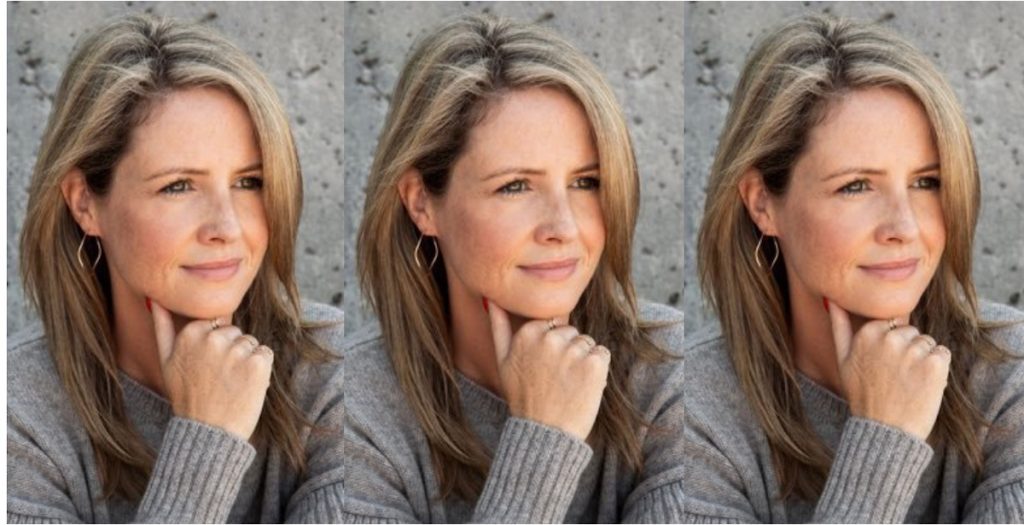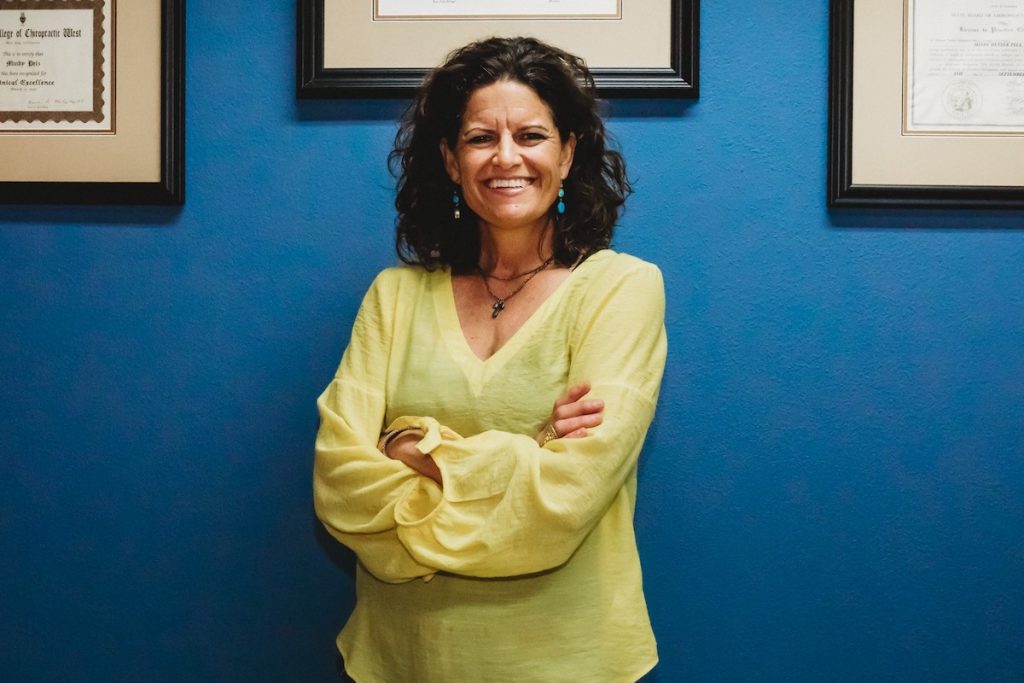The ‘right here’ Dr Pelz is referring to is as a world-renowned holistic health expert; author of three best-selling books, plus her latest release, Fast Like A Girl; and YouTube sensation (with over half-a-million subscribers) where she talks about the benefits of fasting and hormone literacy. “I started teaching nutrition and detoxing online, and then, one day, one of the videos went viral and the rest is history,” she explains. “From there, my social media blew up and I think it’s because people today are so thirsty to try and understand how their bodies work.”
This is something Dr Pelz is a huge proponent of: people getting back in touch with the natural rhythms and feeling in control of their health. “You know, I think the world is exhausted with this one-size-fits-all approach to health, and with feeling powerless. People, especially women, are so tired of walking into their doctor’s office and saying ‘This, this, this and this is wrong’ and their doctor prescribing them an antidepressant, which is basically saying, ‘You’re crazy.’ Women are done with this kind of treatment.”
For exclusive content, sign up to The Suite – it’s the magazine-style newsletter for women leaders.
Leaving Patriarchal Healthcare Behind
Dr Pelz believes it’s all part of the paradigm shift that’s happening globally. “We’re moving from what I call the ‘patriarchal version of healthcare’ which is very linear,” she explains. “You tell your doctor your symptom, he gives you the diagnosis because that’s what he’s been trained to do. You take a pill or you get some surgery, and if that doesn’t work, you go back again and try another pill or some more surgery. We’ve been doing this for so long that we are exhausted with it, and it has led us straight into the arms of chronic disease.”
Enter the pandemic, which was, quite simply, an amplification of that strategy, Dr Pelz explains. “Everybody stayed home, everybody did what they were told to do, and it still didn’t seem to help in the moment. We are now, as a society, done feeling powerless. Yet the healthcare system is still so outdated, it’s like a dinosaur. It’s stuck in that way of thinking; ‘Oh, you want me, the almighty doctor, to tell you the answer to your problem.’
“This way of thinking has led to people looking for alternatives, Dr Pelz explains, which has also led to society’s rising interest in fasting. “And that’s because a) you can get a result really fast; b) it doesn’t take money; and c) when you get results, there’s nobody to give credit to but yourself,” she says.
Three Myths About Fasting
So, what are the most common misconceptions about fasting? “Well, that it’s a diet,” Dr Pelz says matter-of-factly. “It’s not a diet, and it’s definitely not a fad. Fasting has been around since time immemorial, and it’s not going away. The second misconception is that it’s harmful. And the third is that women shouldn’t do it. Those three are all completely erroneous.”
Think of it like this: when you go into a fasted state, which is about eight hours after you eat food, you’re going to metabolically switch over into this whole other energy system. “The clinical name for it is the Ketogenic Energy System; I call it the ‘Fat Burning System’,” says Dr Pelz. “Once you’ve switched over, all kinds of healing mechanisms start happening. There’s autophagy, where your cells start to detoxify themselves, and apoptosis, where the intelligence in the cell decides it needs to get rid of an ageing cell or a cell that has chronic disease. Your gut will repair, your dopamine system reboots, your immune system reboots – all of that is happening in this healing, fasting state.”
How Women Should Go About Fasting
Sounds like a win/win to us – where do we sign up? “There’s a four-step process to starting a fast if you’re a novice, and the first three steps involve food,” says Dr Pelz. “You want to avoid the bad oils – so that’s canola oil, cotton seed, corn oil; there’s a long list you need to steer clear of. The second thing is that you want to switch over to nature’s carbs. So, get off breads, cakes, pastas, cookies – the processed stuff – and move over to fruit, vegetables and potatoes. And, the third thing is to avoid toxic ingredients – your artificial sweeteners and the dyes that are in some foods.
“If you can make those changes, even for a couple of days to a week, you’re ready to do the fourth step, which is to start compressing your eating window. You can do that by either pushing breakfast back an hour, or ending dinner the night before an hour earlier. You want to get this idea that you eat food within a shorter window or period of time. For example, one of the most famous studies ever done was the 16-8, where for 16 hours you fast, and you only eat within an eight-hour eating window.”
“There’s a four-step process to starting a fast if you’re a novice, and the first three steps involve food.”
Sounds pretty simple, right? Not so fast. They key to fasting, particularly for women, is knowing when and how – and this all comes down to knowing your hormones. “One thing every woman should realise is just how unique she is,” says Dr Pelz. “It’s about understanding your hormonal needs, and that, if you’re cycling, you’re going to have times when you’re incredibly hungry, because progesterone is coming in, and you’re going to have times where you’re not hungry at all. You’re going to have times of the month when you crave carbs, and other times, you don’t. There’s an ebb and flow for women specifically, by the sheer fact that we’re going to crave different things at different parts of our cycle.
“For menopausal women, it’s the same thing. As our hormones are declining, we also have to take into consideration that the impact is changing, not just our menstrual cycle, but our behaviours, and even our organs. There are oestrogen receptors throughout the whole body, so when you don’t have oestrogen, all organs are going to work differently. If you just look at the fact that time-of-life and time-of-month are going to make it so that we are truly unique, then we need to stop fasting like men. And we even have to stop fasting like our female friendships. But most importantly, we need to start listening to our hormones”
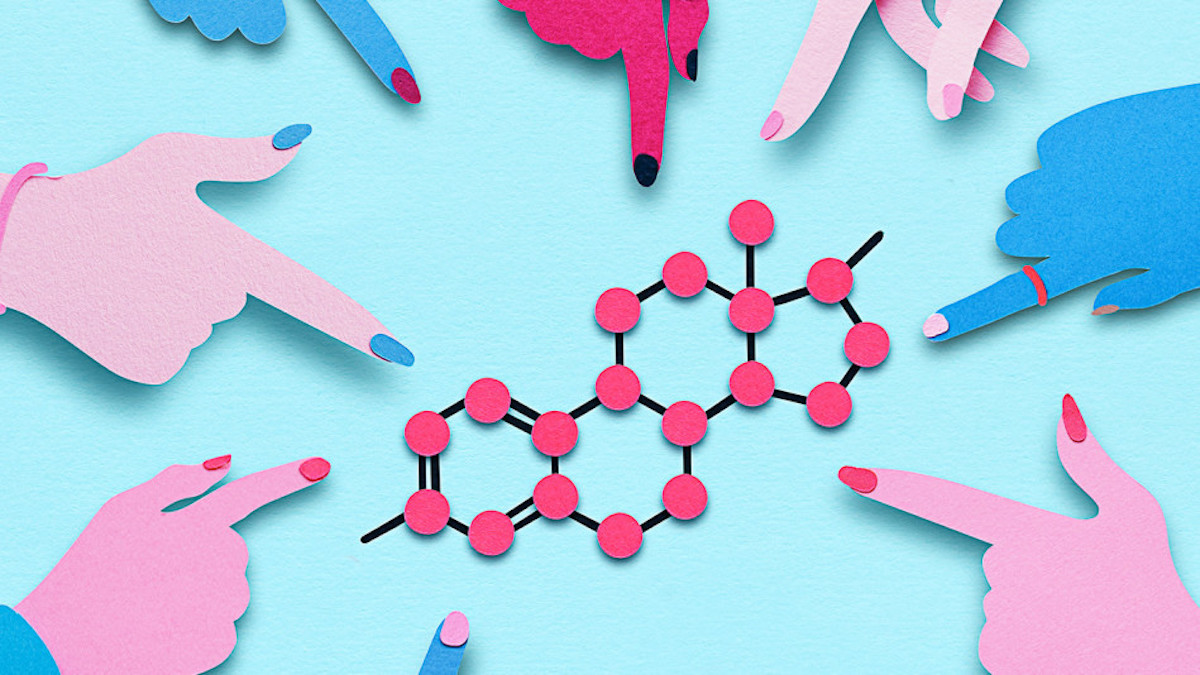
The Role Hormones Play
But herein lies the rub. “We currently have a huge hormonal literacy issue,” explains Dr Pelz. “Doctors don’t understand them, women don’t understand them, we don’t even talk about them. Yet, if you look at what a hormone does, it actually tells the cell how to perform. Your hormones are directing your cells. Yet, when you walk into your doctor’s office, for some bizarre reason, your hormones aren’t taken into consideration. This is a huge problem.
“Let me give you three examples, and the first one is this: during the front half of our menstrual cycle, cholesterol naturally goes up. So, when a woman walks into a doctor’s office and gets a high cholesterol reading, she might get put on a statin (a cholesterol-lowering drug). But did her doctor ask her where she was in her cycle before he or she put her on that statin? I doubt it.
“Your hormones are directing your cells. Yet, when you walk into your doctor’s office, for some bizarre reason, your hormones aren’t taken into consideration.”
“The second one that’s really interesting, and I write about this in Fast Like A Girl, is that we know glucose goes up the week before our period, and that we become more insulin-resistant. But if I walk into a doctor’s office and do a blood test, and my fasting glucose is 100, and maybe my fasting insulin is over five, and really, really high, the doctor is going to shame me and tell me I need to start working on my metabolic health and eating differently. But has the doctor asked where I am in my cycle? Again, probably not. And the third one, which just blows my mind, is the way oestrogen affects trauma.
“So, if a trauma happens to a woman at a time that oestrogen is lower, which is right after ovulation, and when she starts bleeding, because she doesn’t have oestrogen to protect her brain, that particular trauma is actually going to stick in her brain in a more intense way, than if that same trauma happened when oestrogen was high. I read a statistic the other day that 70% of the divorces after the age of 40 are initiated by women, and that is largely because the trauma that’s happening in her life is causing a deeper impact on her brain because she doesn’t have as much oestrogen as she had in her 20s. These are the conversations we need to crack open.”
And there’s an art to these kinds of conversations. “We’ve been living in a patriarchal society that has been very linear; very black and white. That’s why I want to bring the feminine back into our healthcare system. The feminine says that I can crave carbs, and be really hungry, and that’s okay because I’m building progesterone. And the next day, I’m not hungry at all, and I want to fast a little longer, and that’s okay because oestrogen wants me to do that.”
For exclusive content, sign up to The Suite – it’s the magazine-style newsletter for women leaders.
Be Your Own Experiment
Dr Pelz calls this the ‘N-of-1’: “We should be our own human experiment – we need to get back in touch with the natural rhythms of our bodies,” she explains. “Our job becomes getting to know the personality of our hormones, so that we can decide what tool we’re pulling out according to what our hormonal needs are.
“I understand for women that when we first hear this it’s a little daunting because we’ve been so disconnected. We don’t really know ourselves or our bodies. So, I would say to that: be curious. Don’t be blameful to your body, ask questions about why you’re hungry, or why you’re craving carbs. That might be because you need more progesterone. Wonder why you don’t want to exercise today; or why on other days you feel full of energy. Why you might be social and want to hang out with people, and at other times, you’re super-sensitive, irritable or want to be alone. This is the curiosity we need to have, instead of trying to look for ourselves to be the same mood, the same behaviours, every single day. We’re simply not designed that way.”
If we can turn within, advises Dr Pelz, and start to get to know ourselves, and have loving conversations with our partners about that, then society will see the needs a little differently. “We as women have an opportunity to express ourselves in a compassionate way as we start to understand our hormones. And this is where we’re going to see more men join this conversation, because they’re not going to feel blamed, and more women are going to open up because they’re not feeling shamed.”
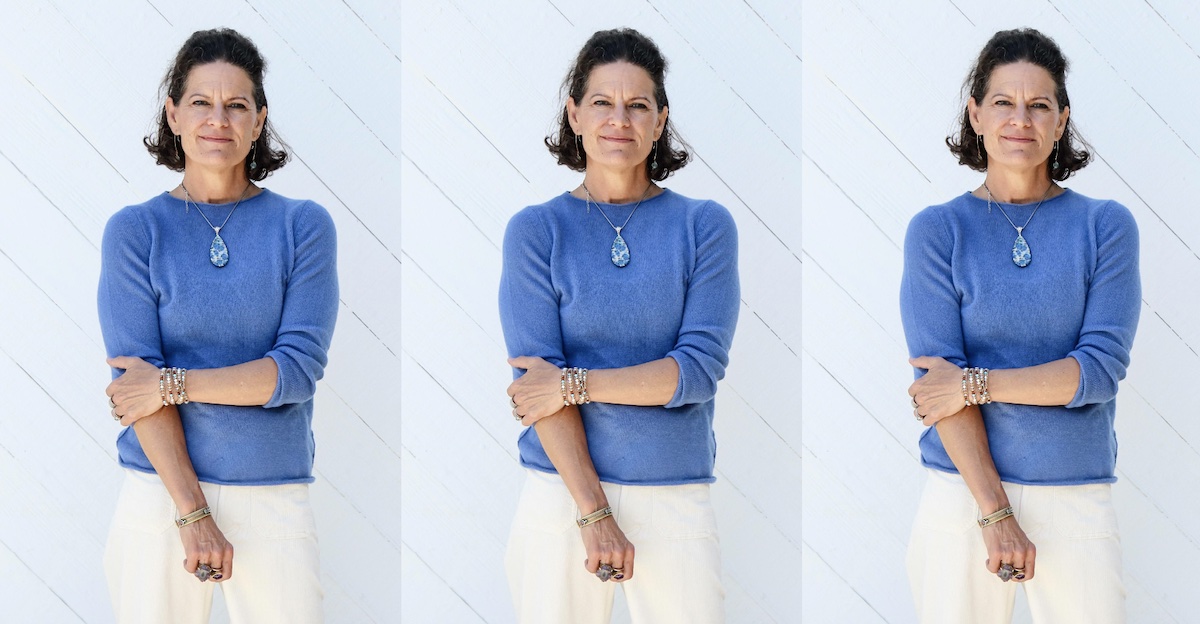
TAKE 5 WITH DR MINDY PELZ
DESCRIBE YOURSELF IN THREE WORDS?
“Passionate, tenacious… and if I can use more than three… deeply compassionate for humans.”
WHAT’S THE MEANING OF LIFE?
“I think that the meaning of life is finding what lights you up and doing that every single day. And I’m going to add to that, it’s doing it with people who light you up. It doesn’t even just have to be work, although my dream for everybody is that they find a passion that they can do for a living. The meaning of life is surrounding yourself with people who light you up. It’s not just your work, it’s not just your passion, but it’s figuring out how you can put yourself in many environments that light you up and make you feel amazing – that’s what we’re here to do.”
WHAT’S THE MOST IMPORTANT LESSON YOU LEARNED FROM YOUR MOTHER?
“There are actually two major health lessons I’ve learned from my mom. She taught me how to read labels and the power of ingredients when I was a little kid. We used to have a grocery store game where we would go around the grocery store and pick the food we wanted, and bring it to her. However, if sugar was in the first four ingredients, we weren’t allowed to get it. As frustrating as that game was at the time, it taught me that the order of ingredients actually dictates how much of that ingredient is in the food, and that sugar is not healthy – and this was back in the 1970s. Another thing she taught me is that people matter, and taking good care of relationships and taking care of people’s hearts is probably the most important thing that you can do in life.”
WHAT’S THE BEST ADVICE YOU RECEIVED FROM YOUR FATHER?
“He taught me about hard work and grit. He was definitely hard on me as a teenager but I learned work ethic from him, and I learned how to overcome obstacles. The other thing he inadvertently taught me was how to not take anything too personally. He could be quite blunt. If I was going out, he’d maybe comment that what I was wearing wasn’t the best outfit I’d ever put together. As harsh as that sounded at the time, he did teach me to take feedback, and how to be okay if somebody tells you something that doesn’t feel good.”
WHAT’S ONE OF YOUR FAVOURITE QUOTES?
“‘You never know how far-reaching something you do, say or think will affect the lives of millions tomorrow,’ by BJ Palmer. The reason this resonates is that one of the things that has given me so much peace of mind in my life is being on a mission to help. We don’t have to always help in big ways – sometimes it could be a kind word, or a smile, to someone who’s working a 12-hour shift and they’re on hour 11. I always try, when I go out into the world, to compliment, acknowledge or thank people. You never know the impact of how you show up in a moment that can change the lives of the people around you. When you change their lives, they’re going to change other’s lives, so it becomes this ripple effect of kindness that we all need every once in a while.”
You can find more information on Dr Mindy Pelz HERE.

